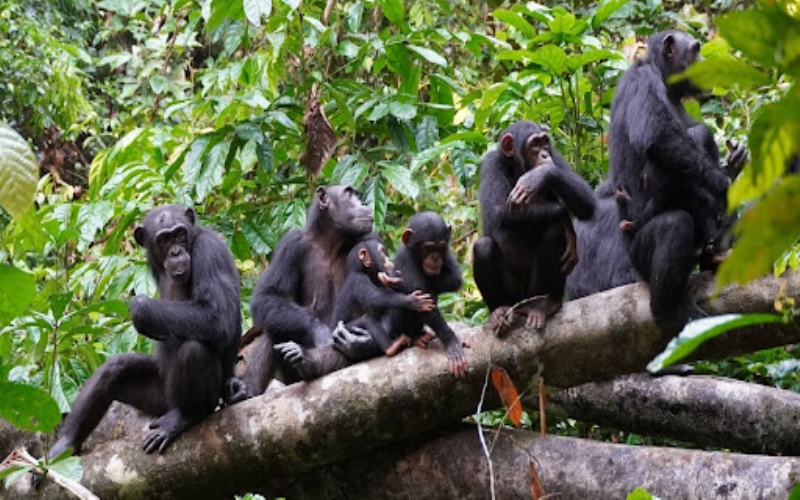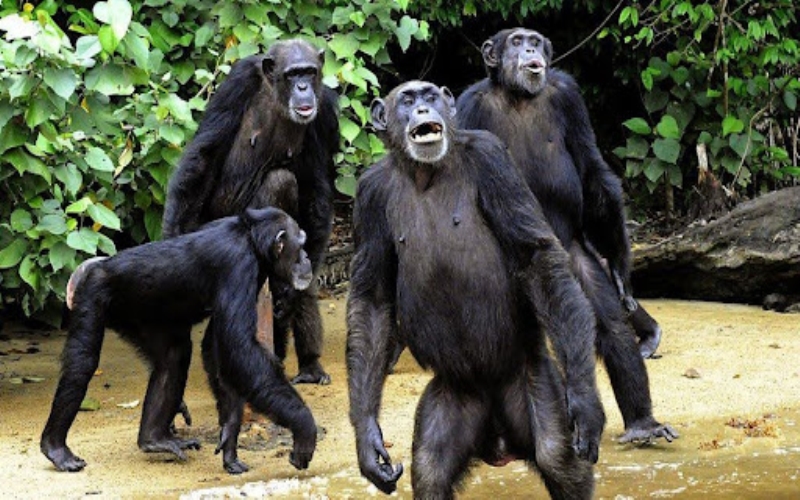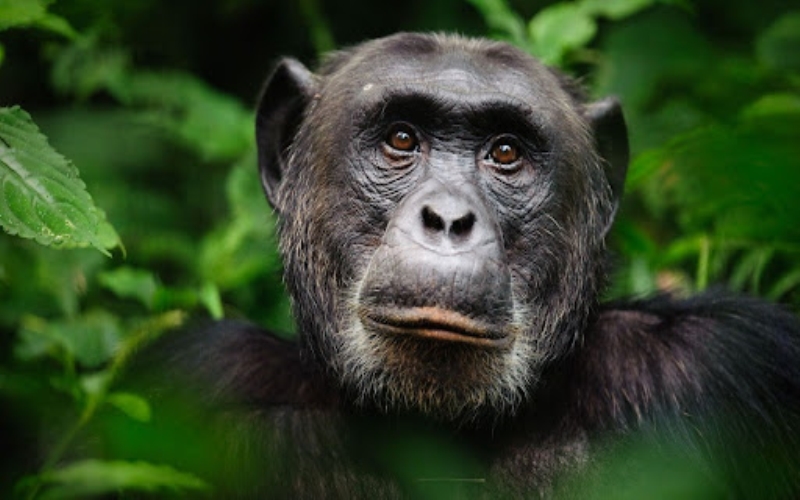Introduction:
Chimpanzees, our closest living relatives in the animal kingdom, captivate scientists and enthusiasts alike with their extraordinary cognitive abilities and complex social behaviors. From problem-solving prowess to tool use and cultural transmission, chimpanzees exhibit a level of intelligence that rivals that of many other species, including humans. In this article, we delve into the factors that contribute to the remarkable intelligence of chimpanzees, shedding light on their cognitive prowess and evolutionary significance.
1. Evolutionary Heritage:
Chimpanzees, along with bonobos, gorillas, and orangutans, belong to the family Hominidae, which shares a common ancestry with humans. Through millions of years of evolution, chimpanzees have developed sophisticated cognitive abilities adapted to their environment, including spatial reasoning, memory, and social cognition. Their close evolutionary relationship to humans suggests that many of the cognitive traits observed in chimpanzees may have ancient origins shared with our common ancestors.
2. Complex Social Structure:
Chimpanzees live in complex social groups characterized by intricate social hierarchies, alliances, and cooperation. Their ability to navigate these social dynamics requires advanced cognitive skills, such as perspective-taking, empathy, and social intelligence. Through observation, imitation, and communication, chimpanzees learn from one another and develop complex social strategies to navigate their social environment, forming strong bonds and alliances that contribute to their survival and reproductive success.
3. Tool Use and Innovation:
Chimpanzees are renowned for their remarkable tool-using abilities, which demonstrate their capacity for problem-solving and innovation. In the wild, chimpanzees use a variety of tools for foraging, hunting, and communication, including sticks for termite fishing, stones for cracking nuts, and leaves for drinking water. Their ability to create and use tools reflects their understanding of cause and effect, as well as their capacity for forward planning and adaptability in response to environmental challenges.
4. Cognitive Flexibility and Problem-Solving:
Chimpanzees exhibit remarkable cognitive flexibility and problem-solving skills, allowing them to navigate complex tasks and novel situations with ease. In laboratory settings, chimpanzees have demonstrated the ability to solve puzzles, use symbols to communicate, and even plan for future events. Their capacity for abstract thinking, reasoning, and planning suggests a high level of cognitive sophistication that is rare among non-human animals.

5. Communication and Language Abilities:
While chimpanzees do not possess language in the same way humans do, they exhibit a rich repertoire of vocalizations, gestures, and facial expressions that udintogel facilitate communication within their social groups. Through vocalizations such as hoots, screams, and pant-grunts, as well as gestures such as grooming and embracing, chimpanzees convey information about their intentions, emotions, and social relationships. Their ability to understand and respond to complex social cues underscores their advanced social cognition and communication skills.
The intelligence of chimpanzees is a testament to the complexity and diversity of cognitive abilities found in the animal kingdom. From their evolutionary heritage to their complex social structure, tool use, problem-solving skills, and communication abilities, chimpanzees possess a suite of cognitive traits that rival those of humans in many respects. By studying chimpanzees in their natural habitats and in controlled environments, scientists continue to gain insights into the nature of intelligence, social behavior, and cognition, shedding light on the evolutionary origins of the human mind and our shared cognitive heritage with our closest living relatives.
Understanding the Strengths and Weaknesses of Chimpanzees: An Overview
Chimpanzees, often referred to as our closest living relatives in the animal kingdom, possess a remarkable blend of characteristics that make them both fascinating and complex creatures. From their advanced cognitive abilities to their intricate social behaviors, chimpanzees offer valuable insights into the diversity of life on Earth. In this article, we explore the strengths and weaknesses of chimpanzees, shedding light on their unique attributes and the challenges they face in their natural habitats.

Strengths of Chimpanzees:
Cognitive Abilities: Chimpanzees exhibit advanced cognitive abilities, including problem-solving skills, tool use, and social learning. Their ability to navigate complex tasks and adapt to changing environments demonstrates their capacity for intelligence and innovation.
Social Intelligence: Chimpanzees live in complex social groups characterized by intricate social hierarchies, alliances, and cooperation. Their strong social bonds and communication skills enable them to form alliances, share resources, and navigate social dynamics effectively.
Tool Use and Innovation: Chimpanzees are renowned for their remarkable tool-using abilities, using sticks, stones, and other objects for various purposes such as foraging, hunting, and communication. Their capacity for tool use reflects their problem-solving skills and adaptability to their surroundings.
Resilience and Adaptability: Chimpanzees are highly adaptable creatures, capable of thriving in a wide range of habitats, from dense rainforests to savannas. Their resilience to environmental changes and ability to exploit diverse food sources contribute to their survival in challenging environments.
Weaknesses of Chimpanzees:
Vulnerability to Habitat Loss: Chimpanzees face significant threats from habitat loss and fragmentation due to deforestation, agricultural expansion, and human encroachment. Loss of habitat disrupts their natural behaviors, reduces available resources, and increases the risk of human-wildlife conflict.
Susceptibility to Diseases: Chimpanzees are susceptible to various diseases, including infectious diseases transmitted from humans and other animals. Outbreaks of diseases such as Ebola and respiratory infections have devastated chimpanzee populations in some regions, highlighting the need for conservation efforts and disease monitoring.
Human-Wildlife Conflict: As human populations expand into chimpanzee habitats, conflicts between humans and chimpanzees have become more frequent. Crop raiding, property damage, and retaliatory killings by humans pose significant threats to chimpanzee populations and exacerbate conservation challenges.
Legal and Illegal Trade: Chimpanzees are often targeted for illegal trade as pets, bushmeat, or entertainment attractions. Poaching and illegal trafficking of chimpanzees for the exotic pet trade and traditional medicine industry contribute to population declines and undermine conservation efforts.
Conclusion:
In conclusion, chimpanzees possess a remarkable array of strengths that contribute to their resilience and survival in the wild. However, they also face significant challenges, including habitat loss, disease, human-wildlife conflict, and exploitation. By understanding and addressing these weaknesses, conservation efforts can be directed toward protecting chimpanzee populations and ensuring their long-term survival in their natural habitats. As stewards of the planet, it is our responsibility to safeguard these extraordinary creatures and preserve the rich biodiversity of our world.

